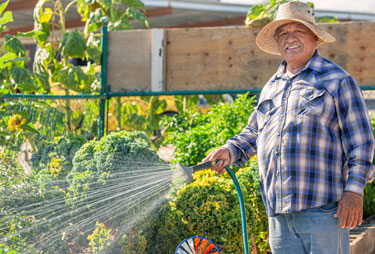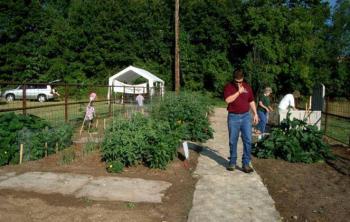Vegetables
Arkansas Community Gardens
Your local county extension office is loaded with resources on gardening. You can also have your soil tested free of charge at the county office, and if you do have problems, agents are available to help diagnose the situation, or send it off to our disease diagnostic lab.
Why should I start a community garden?
 Starting a community garden or getting involved with one provides lots of benefits.
Starting a community garden or getting involved with one provides lots of benefits.
Community gardens are great for:
- Growing nutritious foods
- Conserving resources
- Bringing together different groups of people
- Encouraging self-reliance
- Beautifying neighborhoods
What places might need a garden?
Different groups or organizations might support community gardens. Schools, churches, food pantries, and neighborhood organizations all may be interested in establishing a garden together.
How can I start a community garden?
- Get organized! Find local people in your community who are also interested in starting a community
garden. One person, no matter how dedicated, can't run a community garden alone.
- Where will your community garden be?
- Where will funding for the garden come from?
- Do you have access to water at your potential garden site?
- What type of plants will you grow in your garden?
- Determine your budget. Gardening doesn't have to be expensive, but there are costs associated with community
gardens that you will want to make sure are taken care of.
- Who pays for the water?
- Who pays for the land, or the taxes?
- Is your group renting plots?
- Will your garden have security?
- Who pays for seeds, plants, tools, and fertilizers?
- Write your plan down. Make sure you have in writing what is expected of your community garden and the people
who are involved.
- Who will maintain the garden?
- Who will maintain the garden if someone leaves?
- How will plots and food be divided?
- Advertise your garden. Community gardens are built on cooperation and need lots of hands to stay maintained.
- Let people know about your garden on social media, community events, or flyers.
- Hold an open house.
- Invite the press.
- Start small - build on your success. You don't need a lot to get started with a garden, and you van build your resources
up over time. You don't have to have everything figured out or be an expert gardener
to get going.
- Creat support networks.
- Build coalitions.
- Work with local food banks.

